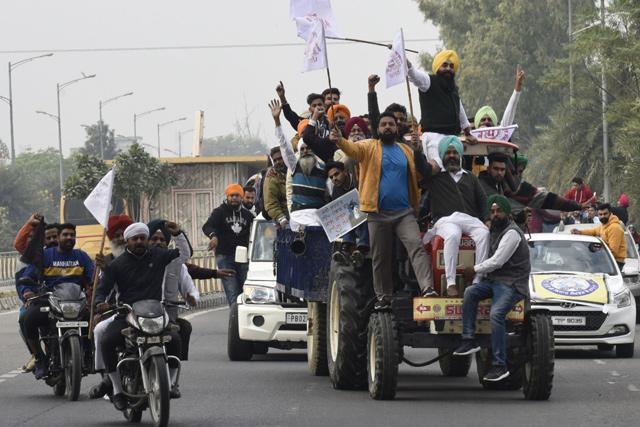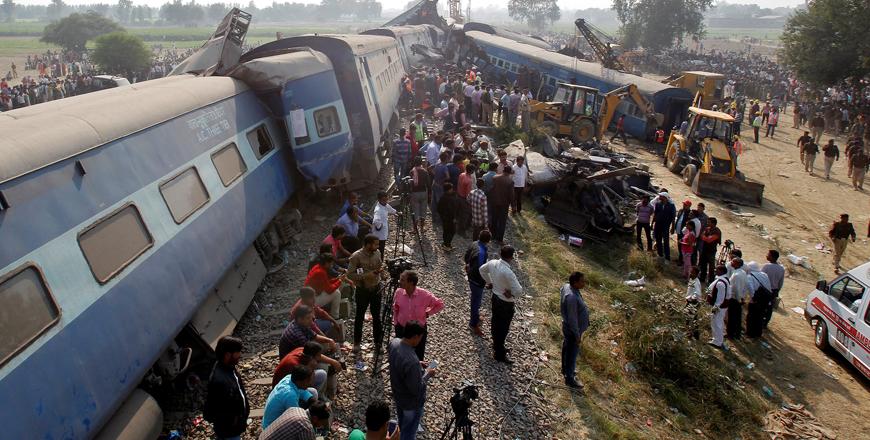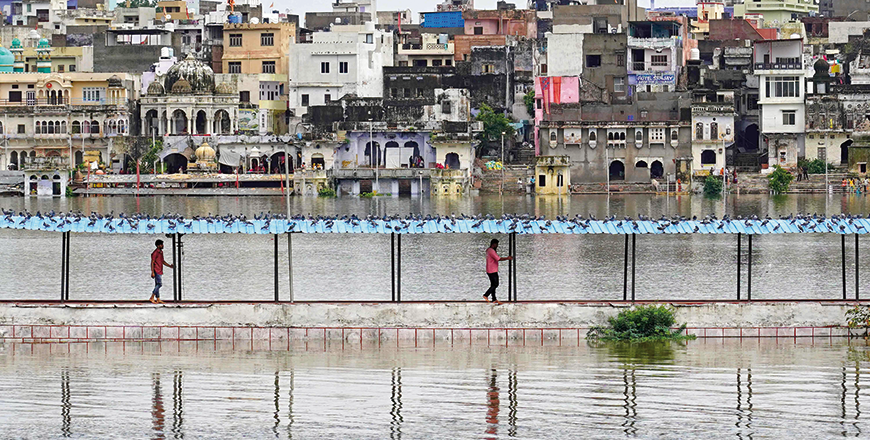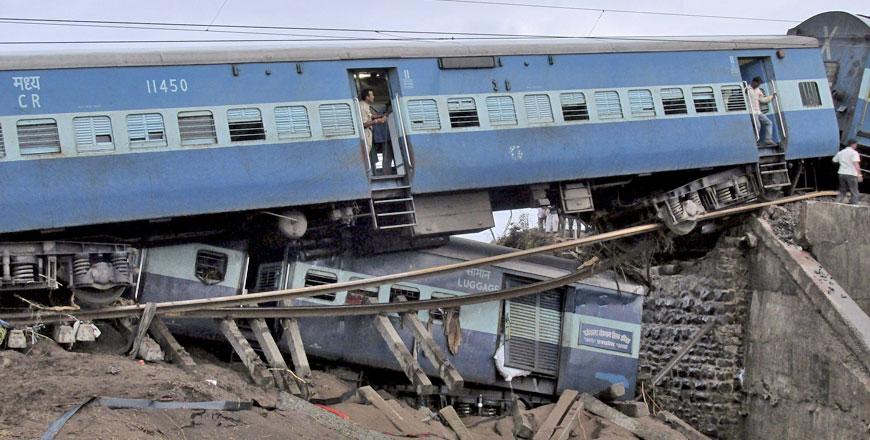You are here
India farmers block railway tracks, roads in national action against new laws
By AFP - Dec 08,2020 - Last updated at Dec 08,2020

Activists of National Students’ Union of India (NSUI) shout slogans against India’s Prime Minister Narendra Modi during a protest in support of a nationwide general strike called by farmers to protest against the recent agricultural reforms in Amritsar on Tuesday (AFP photo)
NEW DELHI — Railway tracks and highways were blocked across India as farmers launched a national day of action on Tuesday against reforms deregulating the agriculture sector, upping the stakes after 10 days blockading the capital.
The protests kicked off on November 26 when thousands of farmers marched towards New Delhi, before holding sit-ins numbering tens of thousands on major roads after being denied access to the capital.
“We are worried, extremely worried. Our children will starve, what could be a bigger worry than this?” farmer Ved Singh told AFP ahead of the strike, echoing fears of his peers that large corporations would lower prices and destroy their livelihoods.
Protesters said late Tuesday they would not give in until the laws are repealed in one of the biggest challenges to the Hindu nationalist government since it was reelected in a landslide in 2019.
“The government is testing our patience but we will not budge,” farmer Raminder Singh from the northern state of Uttar Pradesh told AFP.
“Today’s strike was symbolic and if the government doesn’t listen to us, we will shut the entire country in coming days.”
“We have been protesting for months but the government didn’t listen to us. They forced us to call for a strike,” added another Uttar Pradesh farmer, Mahesh Baliyan.
The widespread action saw Home Minister Amit Shah call for a meeting with farming leaders late Tuesday, ahead of the sixth round of talks on Wednesday.
Some 200 more trucks carrying farmers and food supplies could also arrive at the blockade sites in the next few days, farmers at one of the sit-ins told AFP.
Extra police had earlier been deployed in Delhi and security was boosted in the rest of the country in a bid to head off any trouble.
The farmers were supported in their call for action on Tuesday by railway workers, truck drivers, teachers and other unions.
In many eastern and western states, protesters blocked railway tracks, roads and halted trains.
The blockade and strike have taken on a political dimension with the national ruling Bharatiya Janata Party accusing opposition parties of opportunism by rejecting measures they had called for when in power.
Delhi Chief Minister Arvind Kejriwal’s Common Man Party said he had been placed “under house arrest” since Monday by Delhi Police, which is controlled by the national government, after he visited the farmers’ blockade site. Police denied the claim.
Fruitless talks
Five rounds of talks failed to narrow differences between farmers and ministers.
The laws will allow farmers to sell their produce on the open market — including to supermarket chains — instead of through state-run organisations that guarantee a minimum price.
But Sonipat Agricultural Market Traders Association President Pawan Goyal told AFP the changes will “benefit a few companies, whether Indian or foreign”.
“If the law continues in future, the farmers will be reduced to labourers and only become workers for big companies.”
The government insists the changes are necessary to give agriculture — still the backbone of the Indian economy — a long-term future.
Prime Minister Narendra Modi said Monday that “reforms are needed for development”.
“We cannot build the next century with the laws of the previous century,” he added, in remarks seen as alluding to the protests.
The blockade has already caused fruit and vegetable prices in Delhi to rise over restricted supplies.
The farmers are strongest in the north, but even the government in the southern Karnataka state suspended online school lessons for the day to show support.
Top athletes including wrestler Kartar Singh, who has won gold medals at the Asian Games, said they would return national awards in protest at the laws.
Related Articles
PUKHRAYAN, India/NEW DELHI, India — At least 119 people were killed and more than 150 injured when an Indian express train derailed in north
NEW DELHI — Days of intense monsoon rains across northern India have left at least 29 people dead, rendering many areas inaccessible with br
NEW DELHI —Two passenger trains derailed after flash floods struck a bridge they were crossing in central India, killing up to 27 people in


















